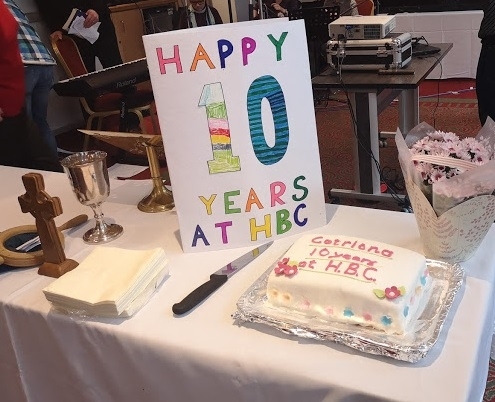That was a very lovely morning.
Celebrating, commemorating, covenanting...
A truly wonderful sermon from my good friend Revd Dr Ruth Gouldbourne, a joy to co-preside at Communion with her and Revd Dr Jim Gordon. Wonderful to have visitors, new students and established friends. The 'ubiquitous' yummy cake hand made by N, amazing music from P, L S F and E and of course the choir. A card and flowers from the Sunday School... It just felt ful of love and life, hope and happiness - what more could a girl wish for?
In the meantime - it's back to being "bothersome small things" in the Kingdom of God.
Thank you everyone, I am blessed beyond measure.


